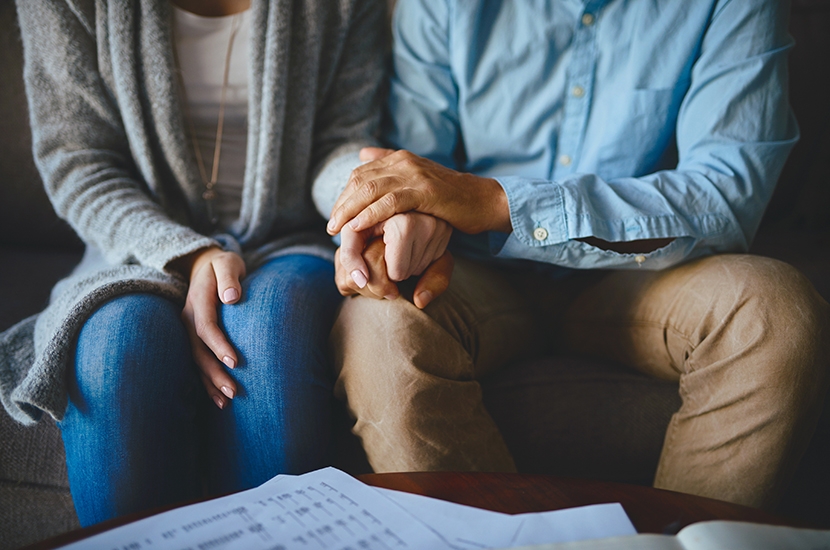No one can say that, over the course of the past year, we have not had the opportunity as a country to practise the grim arts of grief and mourning. We all know the figures — 127,000 Covid deaths and counting — but I wonder if, in the face of this onslaught, we have lost sight of the vital fact that behind each loss there will be a group of family members and close friends of the deceased setting out on the long, slow trudge down the boggy path of grief. How are we dealing with this suffering?
When my father died extremely suddenly six years ago, there was one thing for which I was even more unprepared than the abrupt absence of the most cheerful person I had ever had the pleasure to know. It was the fact that far too many people found it hard to look me in the eye and say how sorry they were for my loss. That is all it would have taken, a simple and clear acknowledgement of a terrible event, but it happened with dispiriting infrequency. Instead, my mother and I were subjected to excruciating hours of small talk while the grief-shaped elephant in the room trumpeted and trampled. Mum and I took to calling this ‘the conspiracy of silence’. Our sadness made other people feel awkward and their awkwardness trumped our need to talk and — gasp — even cry in the immediate aftermath. Why British people have such a fear of the tears of others remains a mystery to me. When I am feeling charitable, I tell myself that the human instinct is to want to fix things that are wrong, and death remains the ultimate unfixable event. I regret to say that I do not always feel charitable.
This widespread skirting around of our sadness winded me at first and later enraged me. I have discussed it with others who have suffered major loss and they all report the same: some people, to use the modish phrase, ‘lean in’ to a friend’s suffering, while others do the opposite. What is even more bewildering is that the people in these two camps are often not quite who you might have predicted beforehand. At least I did not have to endure, as one recently bereaved friend did, someone crossing the street to avoid having to talk to her. Have we really got so little emotional capacity as that? Have we not learnt that saying ‘I am so sorry for you, I don’t know what else to say’ is infinitely better than saying nothing at all?
I can’t help but wonder whether the situation has shifted in a year that has seen death on such a scale. The optimist in me would like to think it has; the pragmatist suspects it has not. The effect of lockdown on national mental health has opened up all sorts of avenues of public discussion — a heartening example of something good coming from something so dreadful. But have we as individuals, as communities, developed more sophisticated mechanisms for dealing with others’ grief? Are we talking, openly and sincerely, to those we know who have embarked on this weary and frustratingly non-linear road? Or are we still under the malevolent spell of the conspiracy of silence?
It is useful to consider how other countries manage this hardest of emotional negotiations. Much as we like to mock the heart-on-sleeviness of Americans, there is much to be said for their tendency to an open expression of sentiment at the times when it really matters. In some eastern societies there continues the tradition of ‘professional mourners’ at funerals. Although this practice looks insincere to western eyes, it at least acknowledges the central role that audible and visible grief should be afforded; there is no stiff-upper-lip nonsense there. It speaks volumes that modern Brits can manage easy, often mawkish outpourings of grief for public figures — Princess Di, Captain Sir Tom, Prince Philip — but, when it matters most in our private lives, continue to be so inept about it.
Social media only serves to highlight the disconcerting disconnect between these two spheres: online grief comes accompanied by huge expressions of sympathy and tweets stuffed full of crying-face emojis, whereas offline is a different story. How can it not wound the bereaved, this disjunction between public warmth and private coldness, between show and tell?
I recently wrote a piece for this magazine about funerals, referencing my father’s. I emailed the web link to a dozen or so friends who had attended the sad event. The response was fascinating but also predictable. Those who had ‘leant in’ to our grief at the time responded promptly with thoughtful words; those who had found it too awkward back then ignored my email. The conspiracy of silence, it seems, is not going to give up without a fight.






Comments